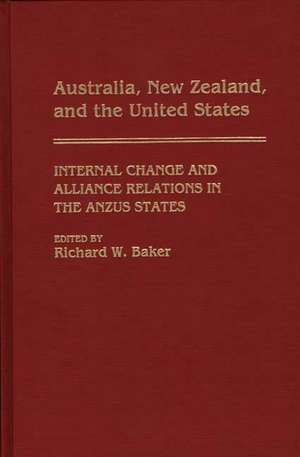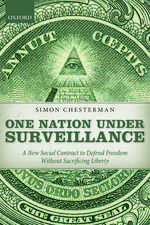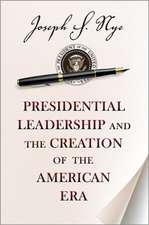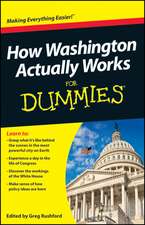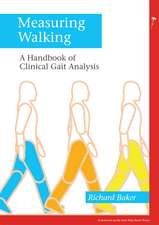Australia, New Zealand, and the United States: Internal Change and Alliance Relations in the ANZUS States
Editat de Richard W. Bakeren Limba Engleză Hardback – 18 apr 1991 – vârsta până la 17 ani
Preț: 463.55 lei
Preț vechi: 610.03 lei
-24% Nou
Puncte Express: 695
Preț estimativ în valută:
88.71€ • 91.65$ • 73.79£
88.71€ • 91.65$ • 73.79£
Carte tipărită la comandă
Livrare economică 19 martie-02 aprilie
Preluare comenzi: 021 569.72.76
Specificații
ISBN-13: 9780275937973
ISBN-10: 0275937976
Pagini: 304
Dimensiuni: 156 x 235 x 18 mm
Greutate: 0.6 kg
Ediția:New.
Editura: Bloomsbury Publishing
Colecția Praeger
Locul publicării:New York, United States
ISBN-10: 0275937976
Pagini: 304
Dimensiuni: 156 x 235 x 18 mm
Greutate: 0.6 kg
Ediția:New.
Editura: Bloomsbury Publishing
Colecția Praeger
Locul publicării:New York, United States
Notă biografică
RICHARD W. BAKER is a Research Associate in the East-West Center's International Relations Program. Formerly a career officer in the U.S. Foreign Service, he specializes in the Asia-Pacific region. He has authored articles and papers on ANZUS, ASEAN, the Pacific Islands, Pacific regionalism and the U.S. role in the region.
Cuprins
PrefaceIntroductionSocial DynamicsAustralia: Social Dynamics and International OrientationNew Zealand and Social Dynamics: Changing ModelsSocial Dynamics and Political Consciousness: The United States Since 1945CommentPolitical EvolutionCentral Power in the Australian Commonwealth: The Postwar PolityThe World Turned Upside Down? Change and Continuity in New Zealand Politics in the Postwar EraU.S. Political Change and the ANZUS RelationshipImages and AttitudesAustralia, New Zealand, and the United States: Mutual PerceptionsAdrift in an Alien Sea? Australian Perspectives on the WorldNew Zealand and the ANZUS Alliance: Changing National Self-Perceptions, 1945-88Peripheral International Relationships in a More Benign World: Reflections on American Orientation toward ANZUSCommentImplications for RelationshipsBibliographyIndex
